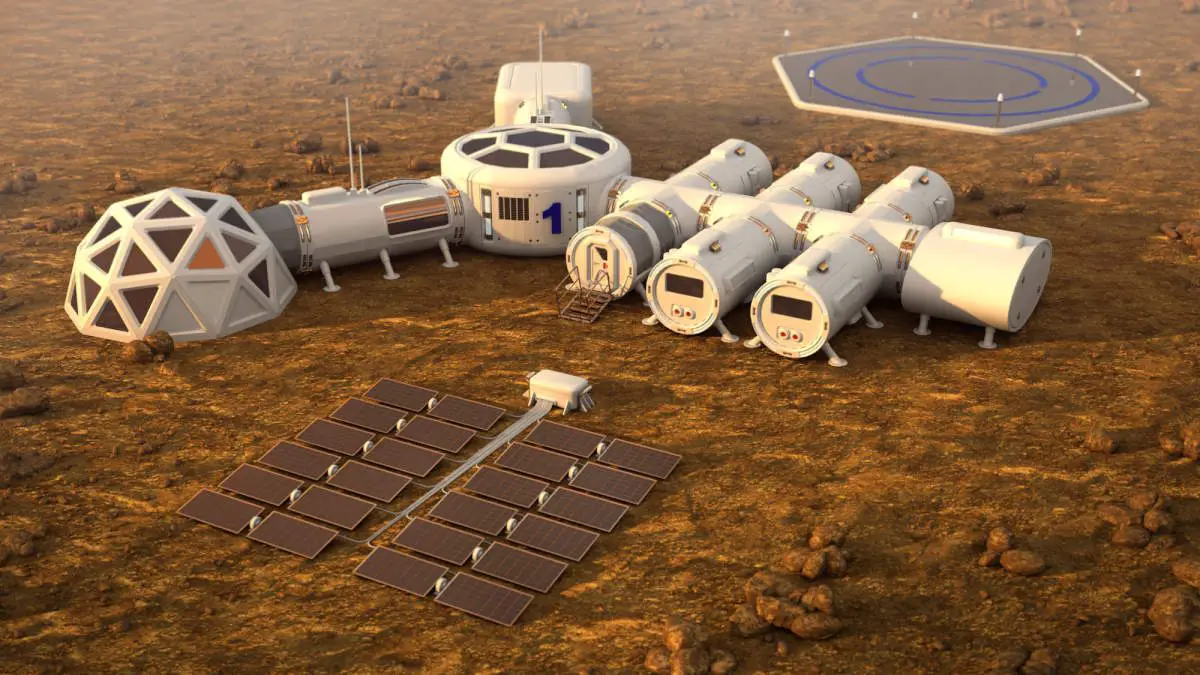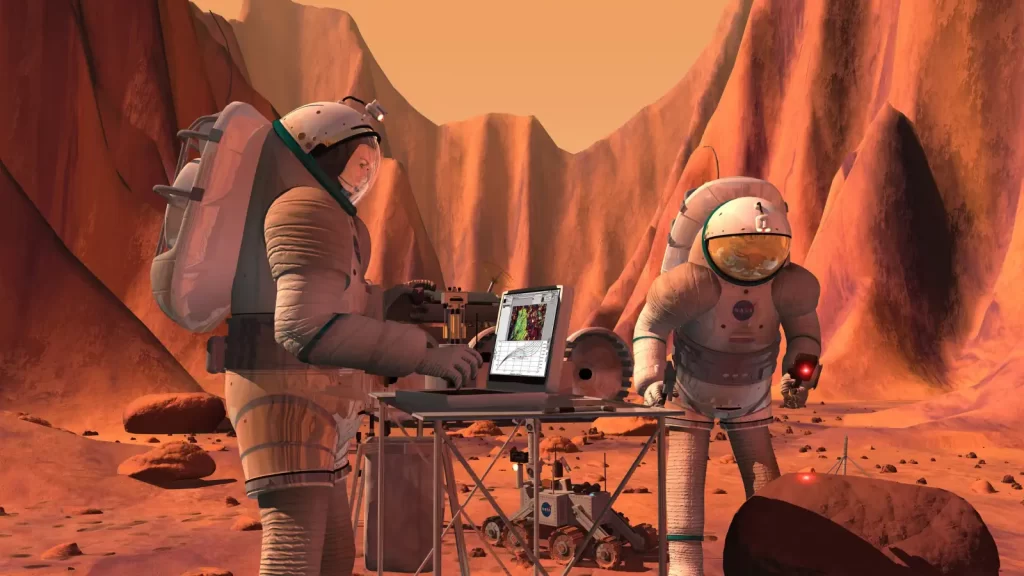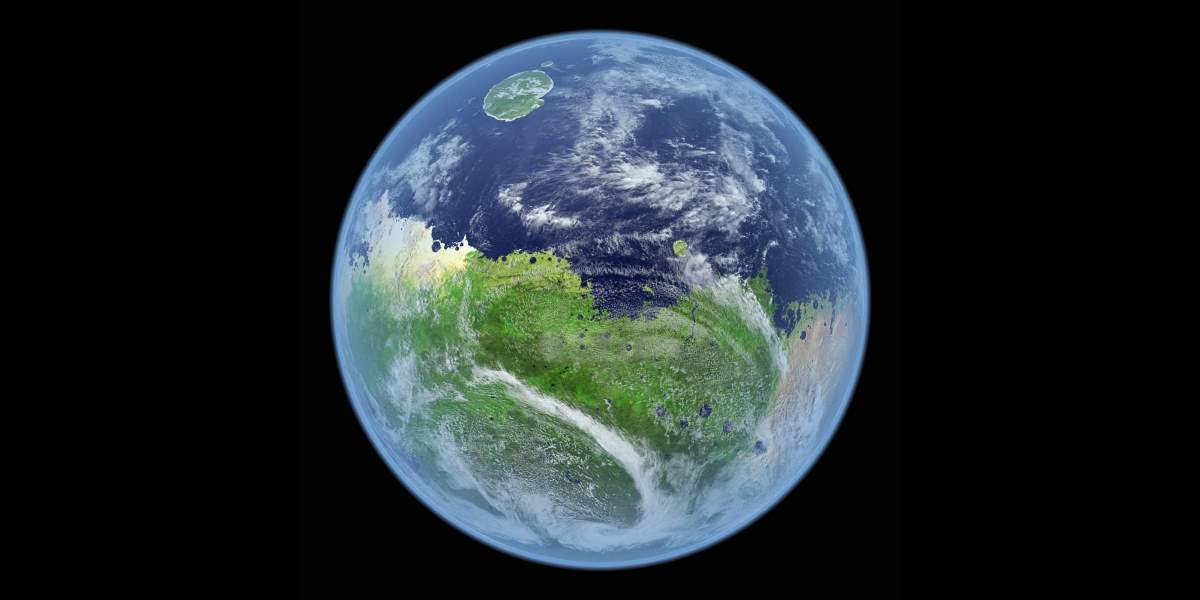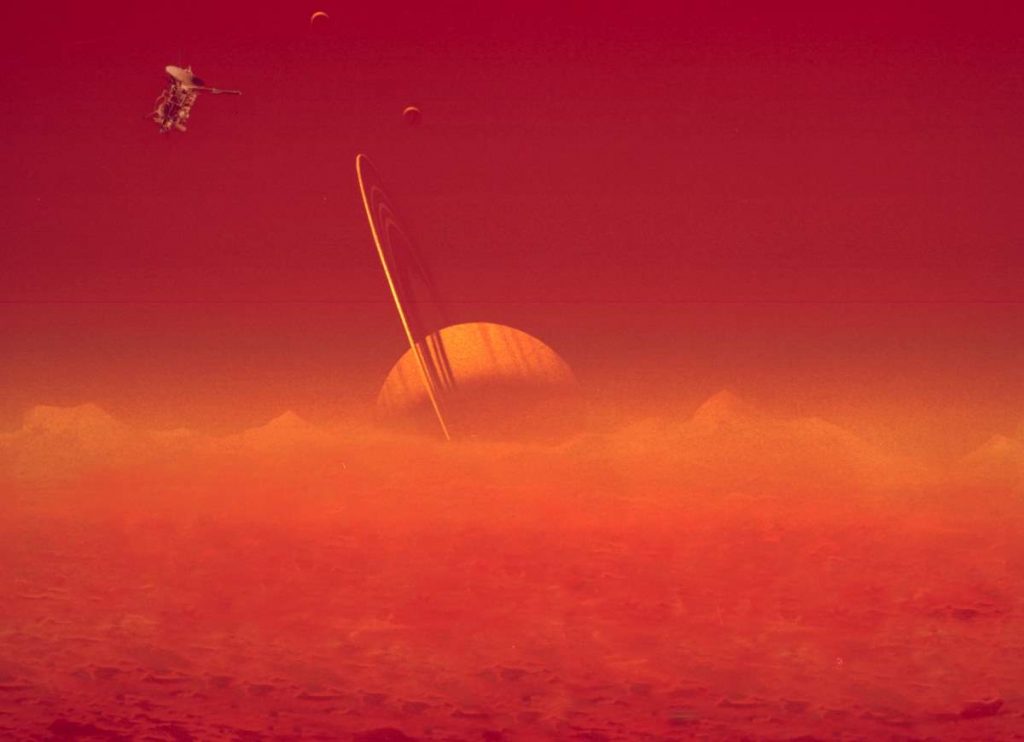In the quest for expanding the boundaries of human exploration and ensuring the long-term survival of our species, the idea of colonizing Mars and other celestial bodies has emerged as a captivating and viable possibility. While Earth remains our home, the potential colonization of Mars, along with other planets and moons within our solar system, presents a host of compelling reasons. From scientific discovery and resource utilization to the preservation of our species, the case for venturing beyond our blue planet grows increasingly enticing.
Why should we colonize Mars?
Alex Kuzoian and Jessica Orwig of Business Insider have prepared a video titled “Here’s why Elon Musk wants to colonize Mars”. In the video below, we see some reasons why we should colonize Mars someday.
A summary of the video:
- What if a giant asteroid strikes Earth? Or a deadly virus spread across the Earth? These events can occur at any time, and they occurred in the past, many times. Could Mars save the human race from extinction?
- Not all of us have to go, we just need to send enough people to sustain a healthy population when something catastrophic happens on Earth.
- But now, Mars is not a life-friendly place. There’s no food, very little water, and no breathable atmosphere. And the ultraviolet levels are so high that no one can live there without UV protection. In fact, most organisms including humans would die.
- We need an Earth-like planet. Mars is also too cold to be like Earth.
- We are making Earth warmer every year, because of the high CO2 emissions. So, we already know how to make a planet warmer. We can use the same method on Mars: we can increase the CO2 in Mars’ atmosphere.
- There is frozen CO2 at the poles of Mars. We can release this CO2 into the atmosphere to create a greenhouse effect (see notes 1).
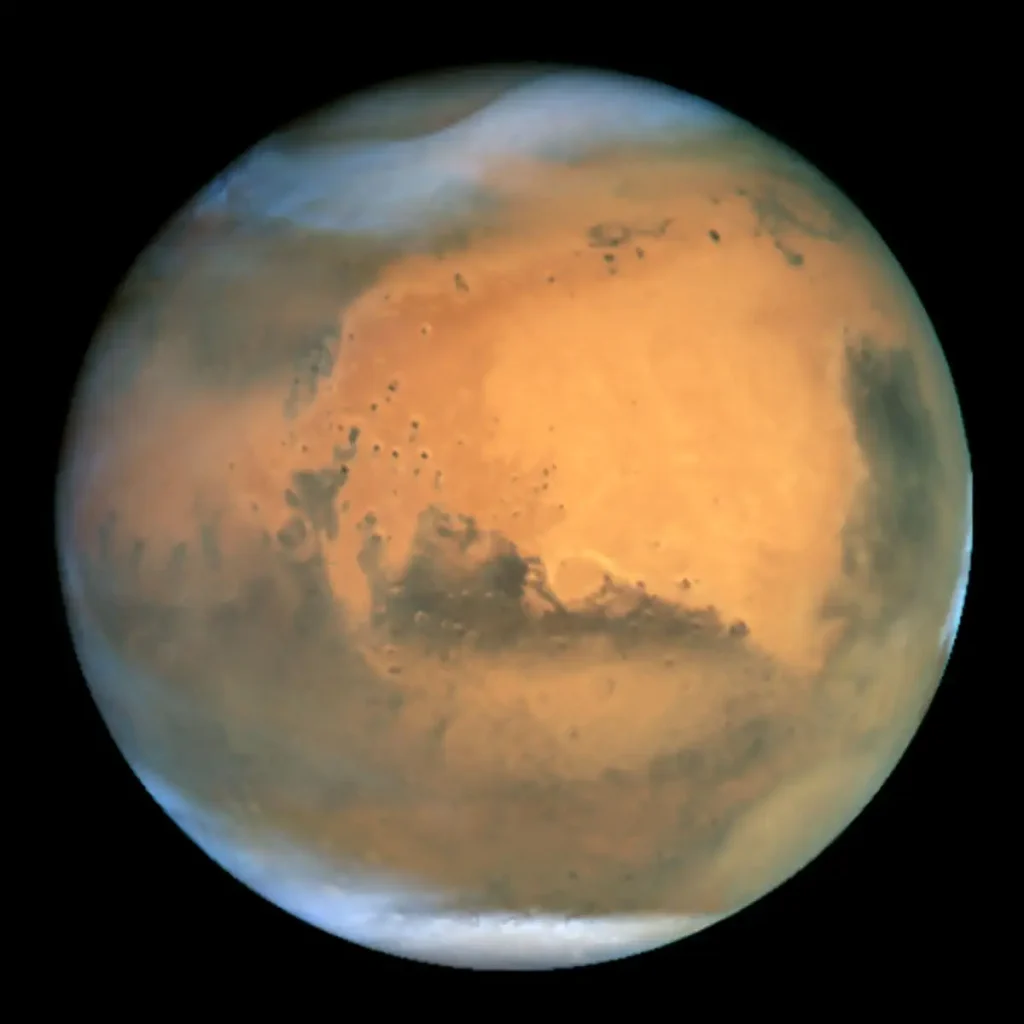
Increasing CO2 levels will not only make Mars warmer but will also thicken the atmosphere. A thicker atmosphere can block the highly dangerous UV light. So, the microorganisms can survive. Ideally, we would send Cyanobacteria first (see notes 2), they will produce the O2 and O3 (ozone) for the atmosphere. And when these oxygen-producing bacteria die, their biological matter will enrich the Martian soil.
But, how could we release the CO2 at the poles into the atmosphere?
One crazy suggestion from Elon Musk: “We can nuke the poles.” Another option: we can put giant mirrors into the orbit of Mars which will focus the sunlight, so we can melt down the CO2 at the poles. Even then, it will take hundreds, even thousands of years to make Mars a habitable place.
Why we should colonize Mars: some other reasons
- We may discover life on Mars.
- Colonizing Mars, and in general, space research, improve the quality of life on Earth. An example: NASA’s Hubble Space Telescope was taking blurry photos in its early years because of an error in its mirror. Astronomers developed software to correct the images and extract better information from them. This software later helped to detect breast cancer: the algorithm did a better job than the conventional method, which at the time was the naked eye.
- Yes, we must try to keep Earth a habitable place. We must slow down global warming and reverse it back, if possible. Green energy is great. But the Earth has limited resources, and even with huge recycling, they won’t last forever. Especially the metals. So, we must find new resources, and that’s why the colonization of other planets and their moons is really important.
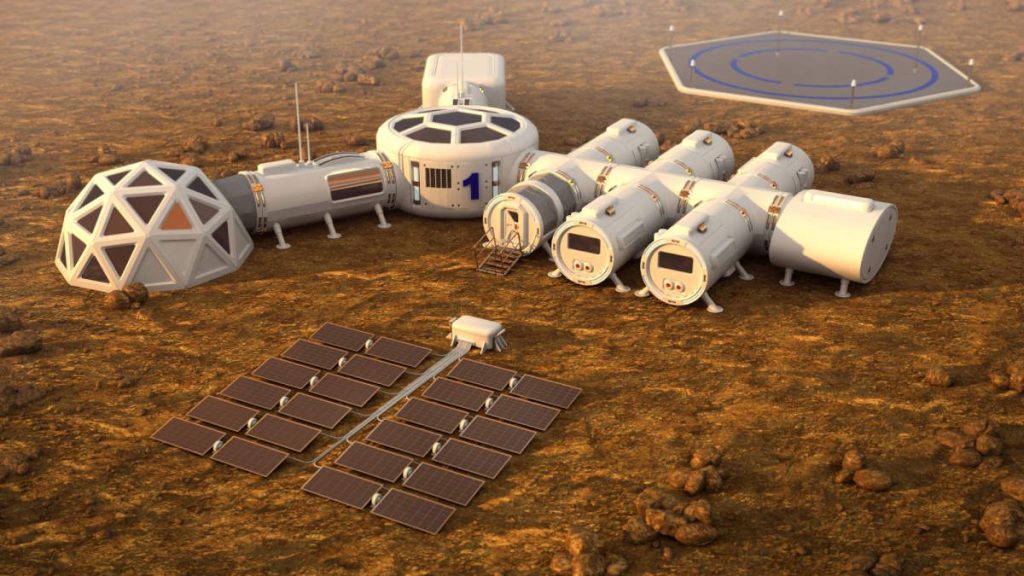
Alternative views: why should we NOT colonize Mars?
Mars is a very tough planet to colonize. While the idea of colonizing Mars has gained significant attention, it is essential to consider the reasons why such an endeavor may not be prudent. Mars poses formidable challenges due to its hostile environment, high costs, potential health risks, ethical concerns, and uncertain ecological impact. Before embarking on interplanetary colonization, we must carefully weigh the drawbacks and prioritize addressing pressing issues on Earth.
Here are some reasons why we shouldn’t colonize Mars, at least at our current technological level.
- Extreme Environmental Conditions: Mars presents significant challenges for colonization due to its harsh environment, including extremely low temperatures, high radiation levels, and a thin atmosphere that lacks essential components for sustaining human life. Mars is known for its harsh radiation environment, which poses a significant challenge to potential human colonization. Unlike Earth, Mars lacks a robust magnetic field and a thick atmosphere to shield against cosmic rays and solar radiation. As a result, the planet’s surface is exposed to higher levels of radiation, including harmful ultraviolet (UV) rays and energetic particles from the sun and deep space. The absence of a protective magnetic field on Mars can be attributed to the planet’s relatively small size and its cooling core, which halted the generation of a global magnetic field billions of years ago. This vulnerability to radiation makes it necessary for future Martian settlers to employ innovative solutions to minimize exposure and protect their health. They will most probably live in underground caves, which brings many psychological problems.
- Cost and Resources: The cost of establishing a self-sustaining colony on Mars would be astronomically high, requiring immense resources and long-term investments that could be better utilized to address pressing issues on Earth, such as poverty, hunger, and climate change.
- Health Risks: Extended periods of exposure to low gravity and radiation on Mars could have severe health implications for human colonizers, including increased risk of cancer, muscle atrophy, and weakened immune systems.
- Distance: The vast distance between Earth and Mars presents a significant concern when considering the colonization of the red planet. At its closest approach, Mars is about 34 million miles (55 million kilometers) away from Earth. This great distance creates substantial logistical challenges, particularly in cases of emergencies that may arise for settlers. Communication delays can range from several minutes to over 20 minutes, depending on the varying positions of the two planets. Such delays can severely impact the ability to provide timely assistance, guidance, or medical support to colonists in critical situations. The prolonged response times and limited real-time interaction emphasize the need for meticulous planning, advanced autonomous systems, and comprehensive emergency protocols to ensure the safety and well-being of future Martian settlers.
- Mars launch window: In addition to the distance challenge, another factor that can pose problems for settlers on Mars is the limited launch window for interplanetary missions. Due to the varying orbits of Earth and Mars around the sun, there are specific time frames, known as launch windows, when the two planets align favorably for spacecraft to travel efficiently between them. These launch windows occur approximately every 26 months and last for only a few weeks. Missing a launch window can result in significant delays, potentially prolonging the time it takes to reach Mars or necessitating extended stays on the planet until the next opportunity arises for a return journey. The restricted launch windows add another layer of complexity to mission planning and increase the risks associated with emergencies or unforeseen circumstances that may arise during the colonization process.
- Ethical Concerns: Prioritizing colonization efforts on Mars may divert resources and attention away from pressing global challenges, such as addressing social inequalities, improving education, and ensuring sustainable development on Earth.
- Unknown Ecological Impact: Introducing terrestrial life to Mars could have unintended consequences for the planet’s unique ecosystem, potentially leading to irreversible damage or contamination of any potential Martian biosphere.
Let’s colonize the Moon first!
Colonizing the Moon before venturing to Mars offers a range of compelling advantages. With its proximity to Earth, the Moon allows for easier communication, quicker emergency response, and shorter travel times. Moreover, the Moon’s accessible resources, including water ice, provide a valuable asset for sustaining life and supporting future space missions. As a testbed for technology, a scientific research destination, a hub for tourism and education, and a catalyst for international collaboration, the Moon emerges as an ideal stepping stone in our journey towards interplanetary colonization.
Here are some reasons why we should colonize our Moon first, instead of Mars:
- Proximity: The Moon is much closer to Earth than Mars, allowing for easier communication, shorter travel times, and quicker emergency response in case of contingencies.
- Resource Accessibility: The Moon contains valuable resources like water ice in its polar regions, which can be utilized for life support, fuel production, and as a valuable resource for future space missions.
- Testbed for Technology: Establishing a lunar colony can serve as a testing ground for developing and refining technologies, systems, and infrastructure needed for long-duration space missions before embarking on the more challenging journey to Mars.
- Scientific Research: The Moon offers unique scientific opportunities for research in fields such as geology, astrophysics, and planetary science, providing valuable insights into the history and formation of our solar system.
- Tourism and Education: A lunar colony can serve as a hub for space tourism, allowing people to experience the wonders of space travel and fostering public interest in space exploration. Additionally, it can serve as an educational platform for students to learn about space science and inspire the next generation of scientists and engineers.
- International Collaboration: The Moon provides a platform for international collaboration, bringing together nations and space agencies to work towards a common goal. By establishing a lunar colony, we can foster global partnerships and leverage shared resources and expertise to accelerate progress in space exploration.
Moon has no atmosphere, right, but Mars also has a very thin atmosphere: the atmospheric pressure on the Martian surface averages 600 pascals (0.087 psi; 6.0 mbar), about only 0.6% of Earth’s mean sea level pressure of 101.3 kilopascals (14.69 psi; 1.013 bar). This means, in practice, Mars has no atmosphere, too! Despite being almost non-existent, it is paradoxically thick enough for reentry to be a problem for probes and spacecraft landing there. Moon has no such problem.
Notes
- The greenhouse effect is the process by which radiation from a planet’s atmosphere warms the planet’s surface to a temperature above what it would be without its atmosphere. If a planet’s atmosphere contains radiatively active gases (i.e., greenhouse gases, Water vapor (H2O), Carbon dioxide (CO2), Methane (CH4), Nitrous oxide (N2O), Ozone (O3), and Chlorofluorocarbons -CFCs-) the atmosphere will radiate energy in all directions. Part of this radiation is directed toward the surface, warming it. The downward component of this radiation – that is, the strength of the greenhouse effect – will depend on the atmosphere’s temperature and on the amount of greenhouse gases that the atmosphere contains.
- Cyanobacteria, also known as Cyanophyta, is a phylum of bacteria that obtain their energy through photosynthesis. The name “cyanobacteria” comes from the color of the bacteria (Greek: κυανός (kyanós) = blue). By producing gaseous oxygen as a byproduct of photosynthesis, cyanobacteria are thought to have converted the early reducing atmosphere into an oxidizing one, causing the “rusting of the Earth” and causing the Great Oxygenation Event, dramatically changing the composition of life forms on Earth by stimulating biodiversity and leading to the near-extinction of anaerobic organisms (that is, oxygen-intolerant). Symbiogenesis argues that the chloroplasts found in plants and eukaryotic algae evolved from cyanobacterial ancestors via endosymbiosis.
Sources
Greenhouse Effect on Wikipedia- Cyanobacteria on W
ikipedia - Martian polar ice caps on Wikipedia
- 5 undeniable reasons humans need to colonize Mars on Business Insider
- Moon Landings: All-Time List [1966-2025] - February 2, 2025
- What Is Max-Q and Why Is It Important During Rocket Launches? - January 16, 2025
- Top 10 Tallest Rockets Ever Launched [2025 Update] - January 16, 2025
